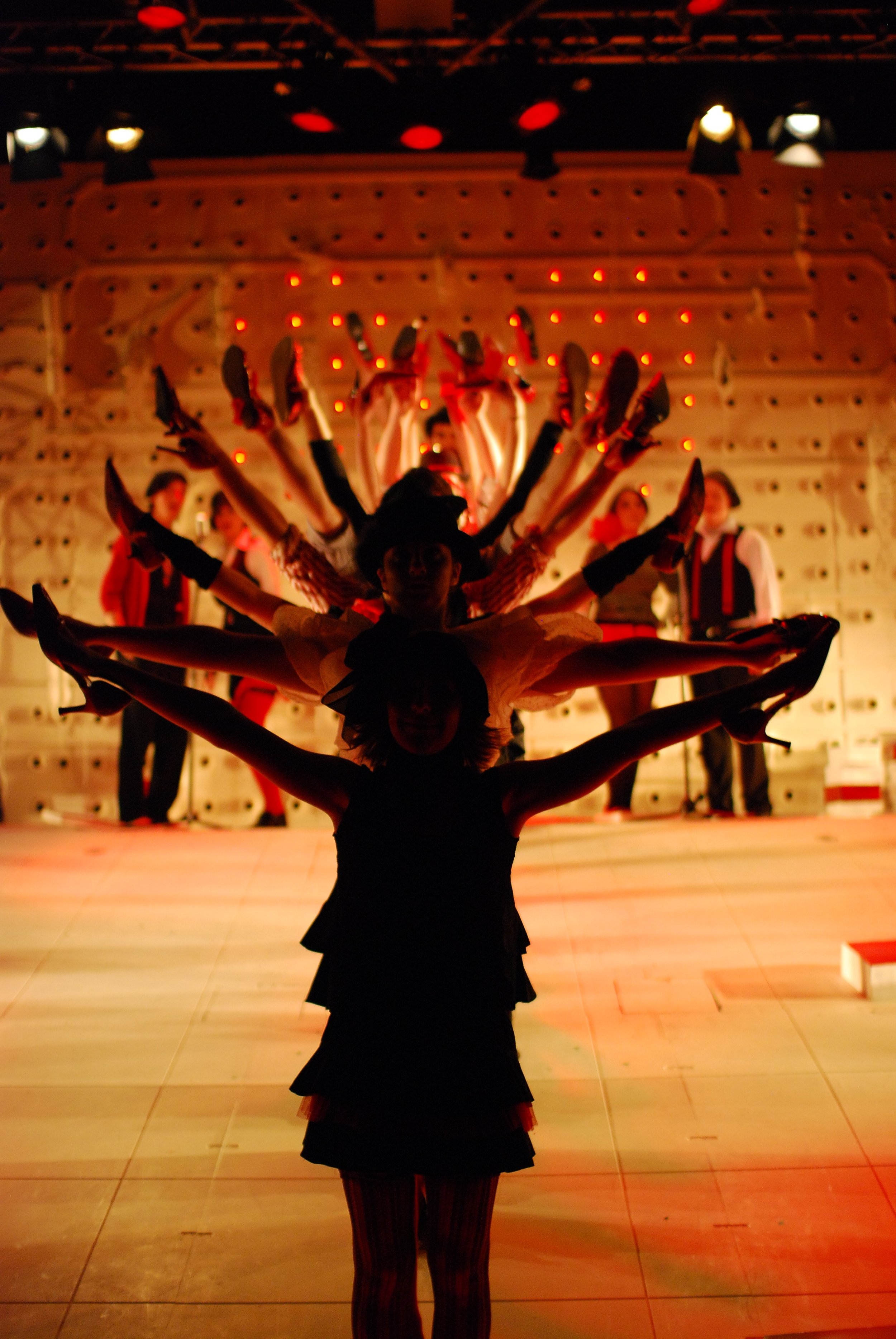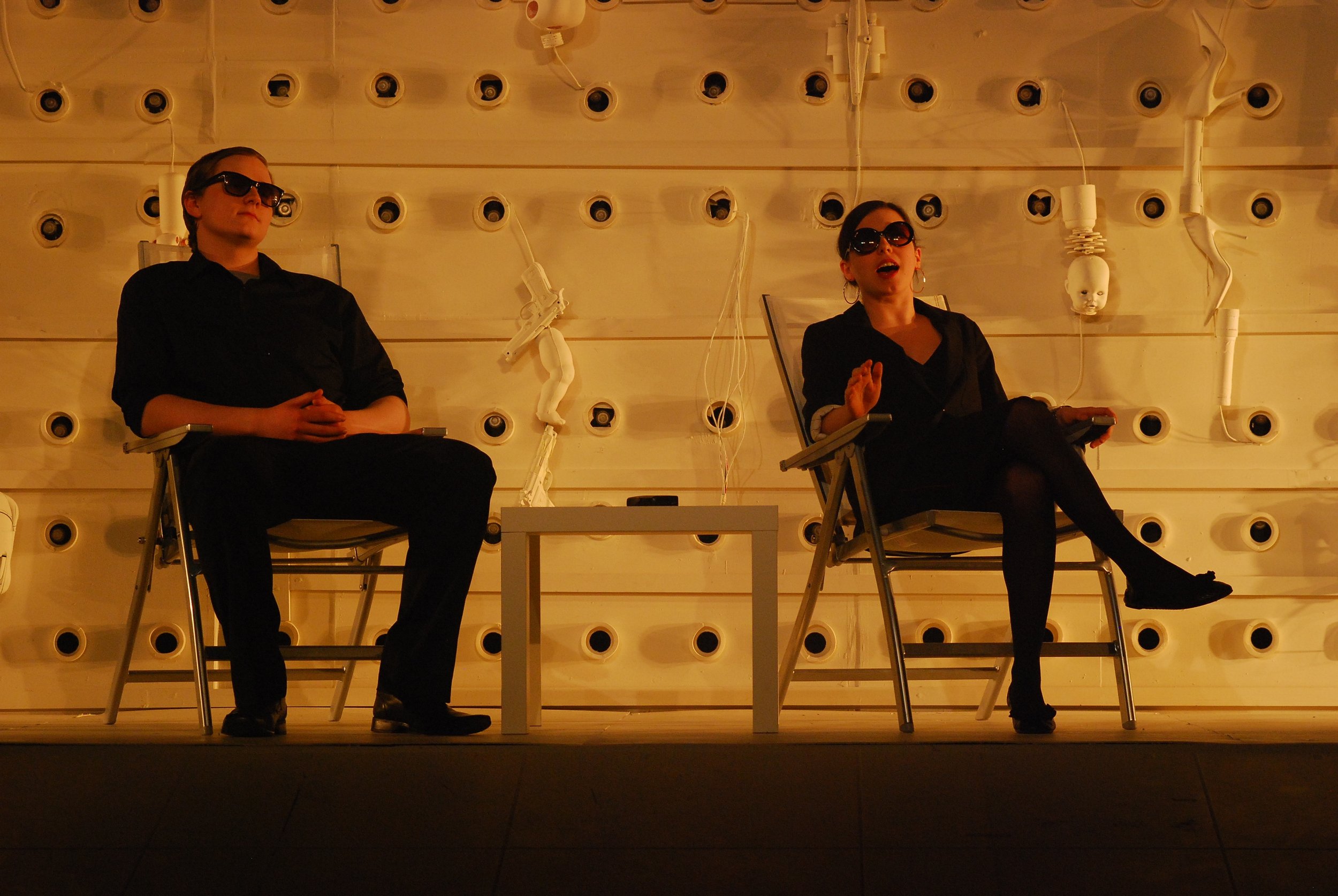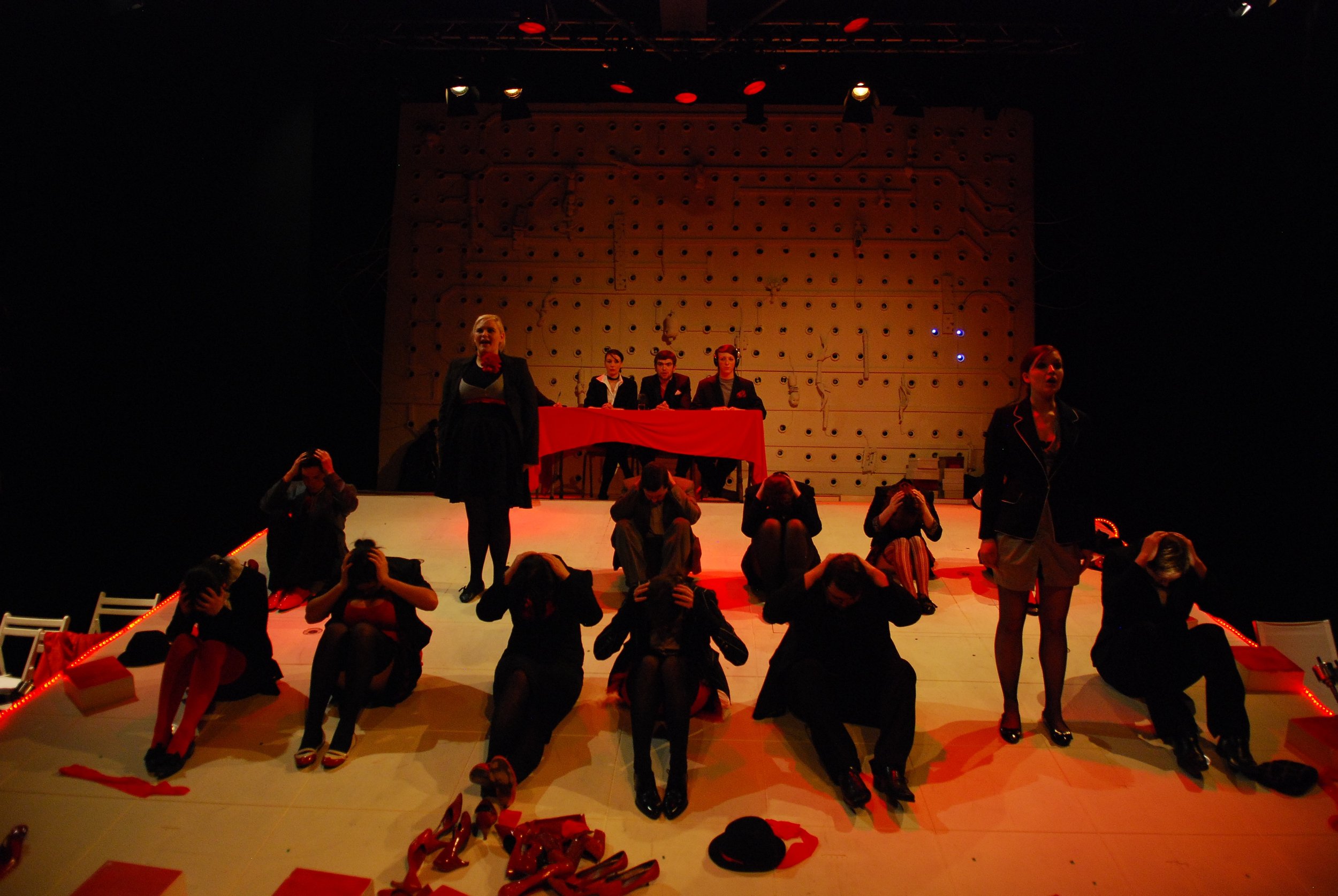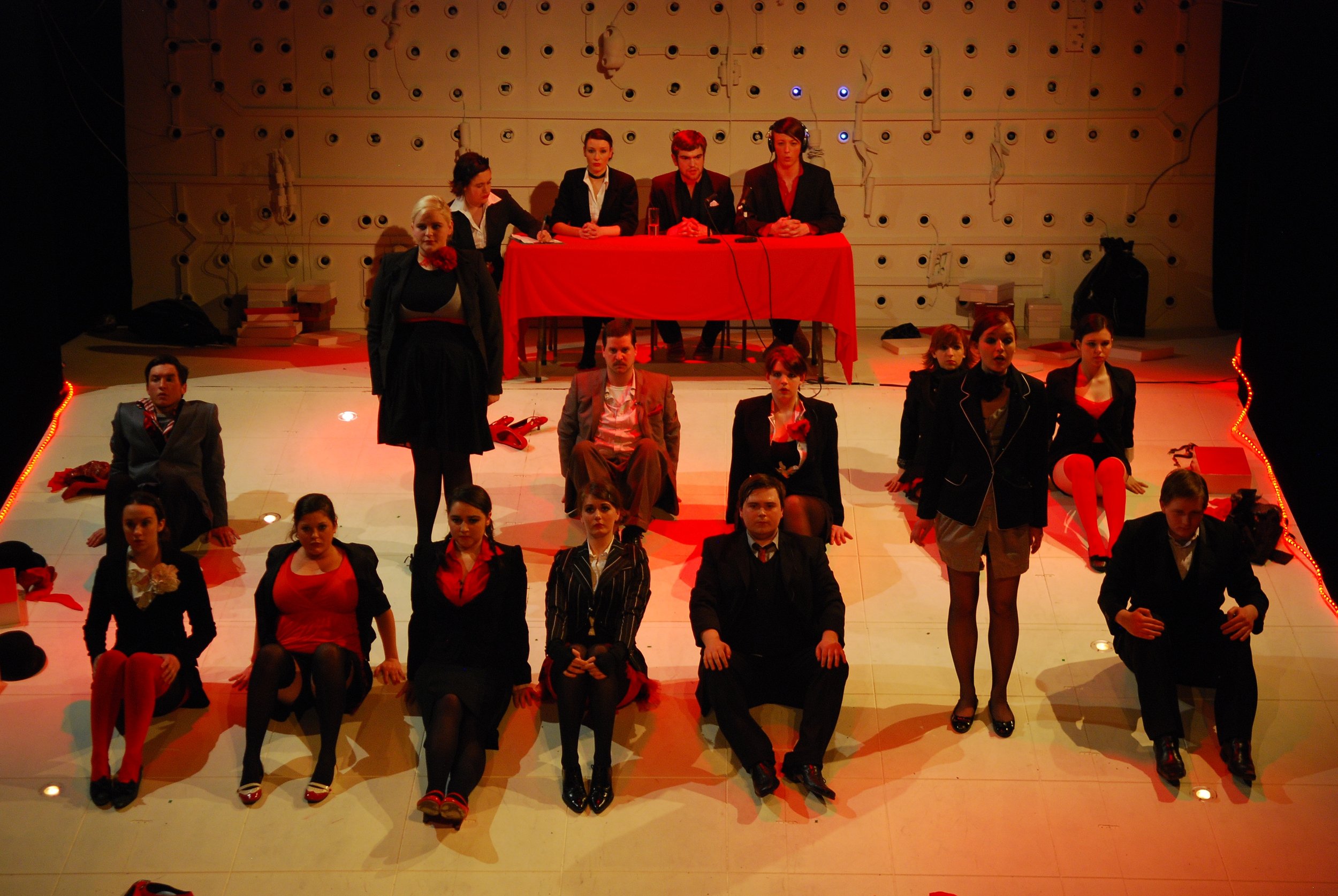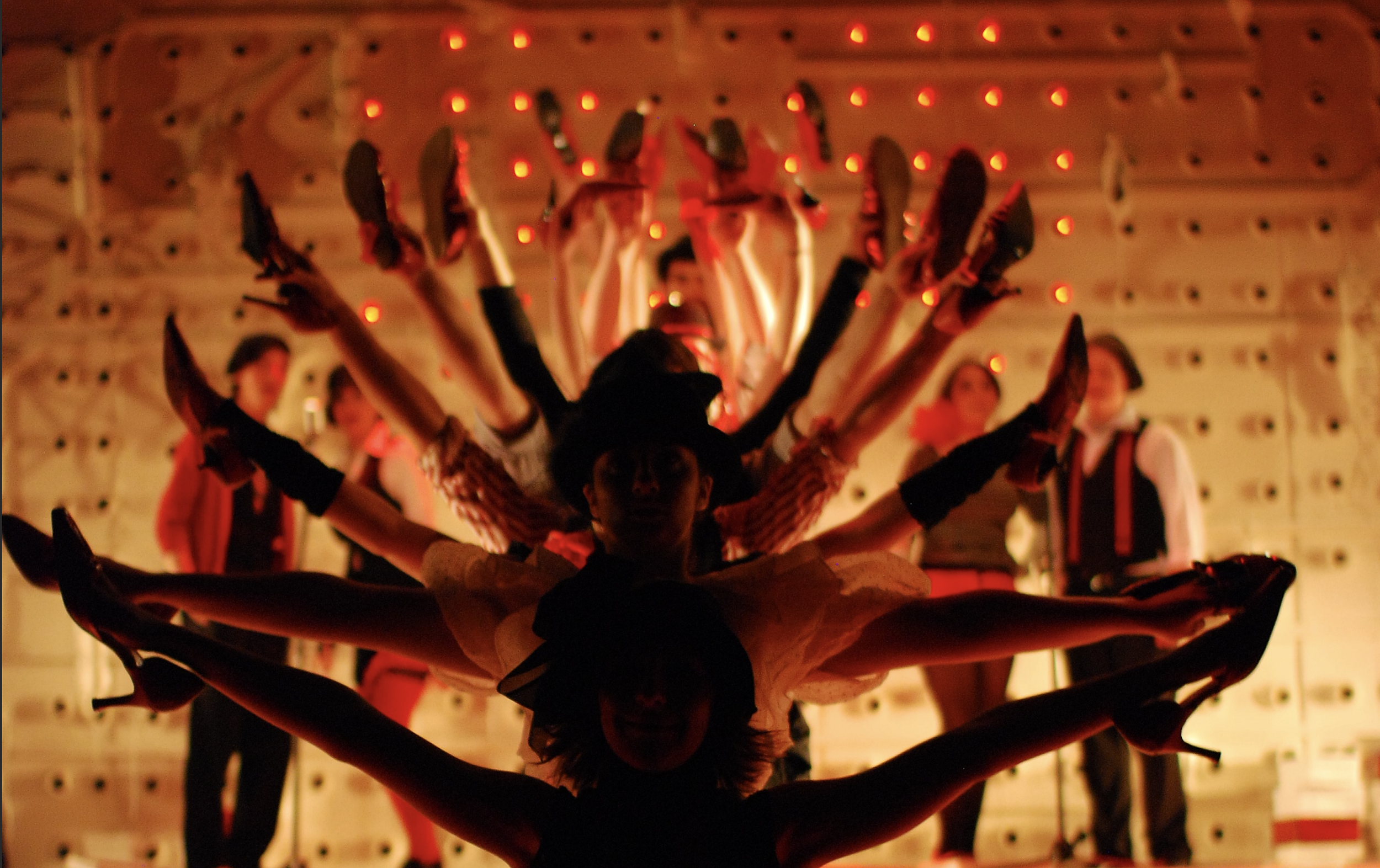
Attempts
On Her Life
by Martin Crimp
2009 | Brian Friel Theatre, Belfast NI
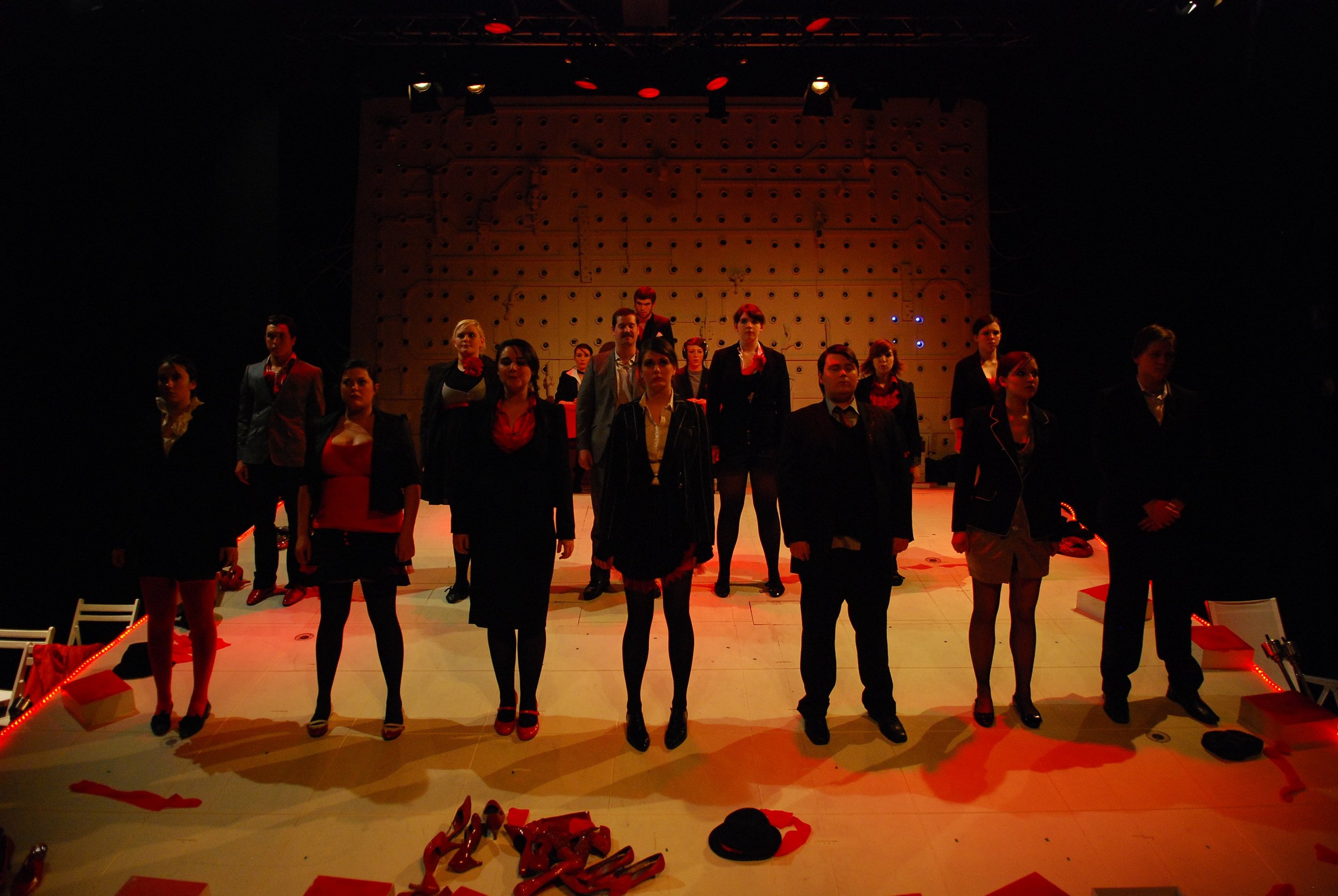
DIRECTOR
Alyson Campbell
PERFORMERS
Claire Bowman, Aaron Burns, Craig Campbell, Grant Cartwright, Katie Fleetwood, Martin Hutchinson, Matthew McFrederick, Sarah McKeever, Sorcha Mackin, Jaclyn Mallon, Jonathan McElvanna, Christine McGowan, Sarah Melville-Watson, Ciera Mooney, Sarah Mullan, Caitriona Reilly, Francine Woods
ASSISTANT DIRECTORS
Siobhán Barbour, Rebekah Rushe
DRAMATURG
Sorcha Chipperfield
DESIGNER
Anna Donovan
COSTUME DESIGNER
Úna Hickey
SOUND DESIGNER
Nick Gillian
LIGHTING DESIGNER/
PRODUCTION MANAGER
Ross McDade
VOCAL COACH
Ross Anderson-Doherty
CHOREOGRAPHER
Francine Woods
GRAPHIC DESIGNER
Adele Smith
British writer Martin Crimp’s play Attempts on Her Life (1997) is widely regarded as a postmodern or ‘postdramatic’ masterpiece, challenging ideas of narrative, character and setting. The figure of ‘Anne’ at the centre of the piece is never represented clearly by a single actor or as a stable ‘character’ onstage, but instead appears in the 17 ‘scenarios’ which make up the play as, amongst other things, a tour guide, a terrorist, a suicide, an installation artist and a car. The play deals with a contemporary globalised and mediatised world in which art, terrorism and consumerism are intertwined in complex and troubling ways. Perhaps even more relevant in the post 9/11 world than the ‘90s, Attempts is a deeply political play by way of a form that refuses to offer easy categorisation or answers to our current world situation.
-
5 - 9 May 2009
Brian Friel Theatre
Belfast, NI
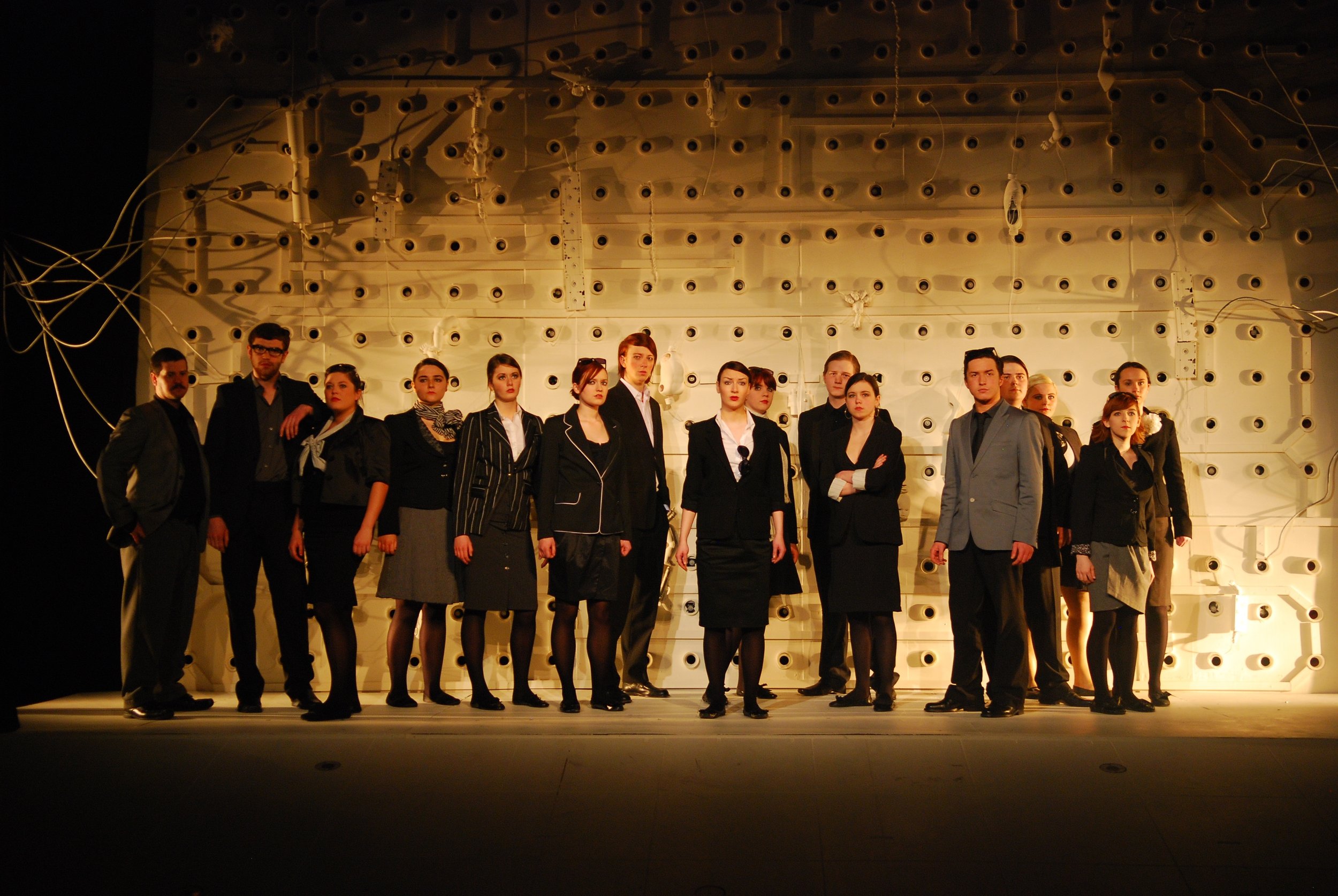
Research
Adapting musicology’s use of affect theories to contemporary theatre making: directing Martin Crimp’s Attempts on Her Life’ (2012)
Journal of Adaptation in Film and Performance, 4.3, pp. 303-318.
Adopting and adapting musicology's use of affect theories, specifically Jeremy Gilbert's idea of an 'affective analysis' and David Epstein's idea of 'shaping affect', this article looks at Martin Crimp's Attempts on Her Life from a practitioner's perspective. It investigates the challenges and benefits of adopting an 'affective approach' to directing recent theatre texts that stress the musicality and corporeality of language along with, and at times above, its signifying roles. Rather than locating Aristotelian dramatic climaxes based on narratological or characterological progression, an affective approach seeks to identify moments of affective intensity, which produce a different sort of impact by working on a 'body-first' methodology, rather than the directly cerebral. That this embodied impact is not ultimately meaningless is one of affect theory's most vital assertions. This approach has resonance in terms of how directors, performers and critics/theorists approach work of this type.
